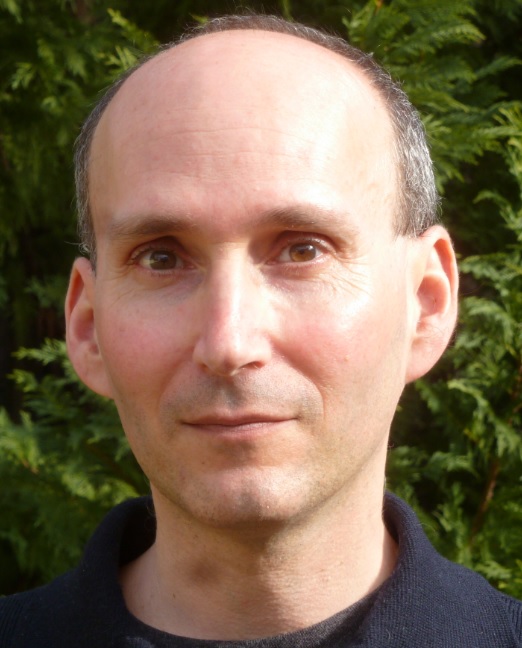means when twenty percent of the world's population consumes resources at a rate that robs the poor nations and future generations of what they need to survive" (sec. 93). Think a minute, says the Pope. Our present patterns of consumption (and excretion) are dangerous. We are killing people right now, and generations in the future. The Pope challenges us to reconcile our behavior with the Biblical commandment.
I learned that commandment when I was a kid and I've long been worried about environmental degradation. The Pope put them together for me. Next week I will thank him when he comes to DC at the
Moral Action Rally on the national mall.
* * * * * * * * *
The Encyclical starts with historical context that blunt accusations of radicalism. Pope Francis reminds us that
Pope Paul VI warned in 1970 that "the progressive deterioration of that which has generally come to be called the environment, risks provoking a veritable ecological catastrophe." In 1971 Pope Paul VI cautioned that "Due to an
ill-considered exploitation of nature, humanity runs the risk of destroying it and becoming in turn a victim of this degradation" (sec. 4).
Saint John Paul II warned in his first Encyclical that human beings frequently seem "to see no other meaning in their natural environment than what serves for immediate use and consumption" (sec. 5).
But the Encyclical probes deeper than any pope, or even any particular religion. The Earth is our "common home," Francis reminds us again and again. Our Earth "is like a sister with whom we share our life and a beautiful mother who opens her arms to embrace us" (sec. 1). But "this sister now cries out to us because of the harm we have inflicted on her by our irresponsible use and abuse" (sec. 2).
The only solution is "to bring the whole human family together to seek a sustainable and integral development" (sec. 13) Pope Francis wants to "strengthen the conviction that we are one single human family. There are no frontiers or barriers, political or social, behind which we can hide, still less is there room for the globalization of indifference." (sec. 52). It is a message of togetherness and unity.
When God enters, it is in an anodyne fashion. "God gave the earth to the whole human race for the sustenance of all its members, without excluding or favouring anyone" (sec. 93). Pope Francis brings us all the way back to Genesis where Adam and Eve were told to "'till and keep' the garden of the world" (sec. 67, Gen. 2:15). But the Pope is clear that "till and keep" does not mean "plunder at will" (sec. 2). Rather, it means "caring, protecting, overseeing and preserving. This implies a relationship of mutual responsibility between human beings and nature. Each community can take from the bounty of the earth whatever it needs for subsistence, but it also has the duty to protect the earth and to ensure its fruitfulness for coming generations" (sec. 67).
But the Encyclical goes beyond religion. Francis challenges the capitalist roots of the crisis:
"The principle of the maximization of profits, frequently isolated from other considerations, reflects a misunderstanding of the very concept of the economy. As long as production is increased, little concern is given to whether it is at the cost of future resources or the health of the environment; as long as the clearing of a forest increases production, no one calculates the losses entailed in the desertification of the land, the harm done to biodiversity or the increased pollution" (sec. 195).
The particular problem is externalities:
"Businesses profit by calculating and paying only a fraction of the cost involved. Yet only when 'the economic and social costs of using up shared environmental resources are recognized with transparency and fully
borne by those who incur them, not by other peoples or future generations' can those actions be considered ethical" (sec. 195, citing Pope Benedict, 2009).
Even if business paid the full cost of cleaning up its mess, some problems are bigger than business. Pope Francis advises that "environmental protection cannot be assured solely on the basis of financial calculations of costs and benefits. The environment is one of those goods that cannot be adequately safeguarded or promoted by market forces" (sec. 190)
Pope Francis goes on to challenge our politics.
"It is remarkable how weak international political responses have been," he laments" (sec. 54). Indeed, "[m]any of those who possess more resources and economic or political power seem
mostly to be concerned with masking the problems or concealing their symptoms" (sec. 26). He is not distracted by allegedly inconclusive proof that problems are caused by human activity. "The Rio Declaration of 1992 states that 'where there are threats of serious or irreversible damage, lack of full scientific certainty
shall not be used as a pretext for postponing cost-effective measures'" (sec. 186).
The solution is two-fold, requiring both local and international attention. At the grassroots, "[t]he local population should have a special place at the table; they are concerned about their own future and that of their children, and can consider goals transcending immediate economic interest" (sec. 183). But at the same time, "enforceable international agreements are urgently needed, since local authorities are not always capable of effective intervention" (sec. 173). The Pope is fully aware that "[g]lobal regulatory norms are needed to impose obligations and prevent unacceptable actions, for example, when powerful companies or countries dump contaminated waste or offshore polluting industries in other countries" (sec. 173).
In the end Pope Francis sounds like Spiderman. "With great power comes great responsibility," says the superhero. Pope Francis laments that we have failed the Spidey test. "[C]ontemporary man has not been trained to use power well," he concludes. "[O]ur immense technological development has not been accompanied by a development in human responsibility, values and conscience" (sec. 105).





